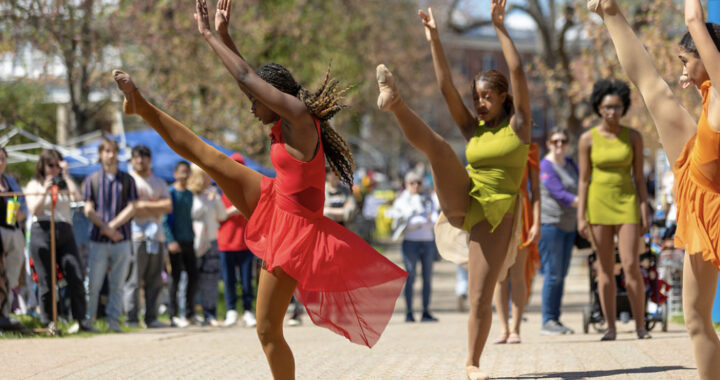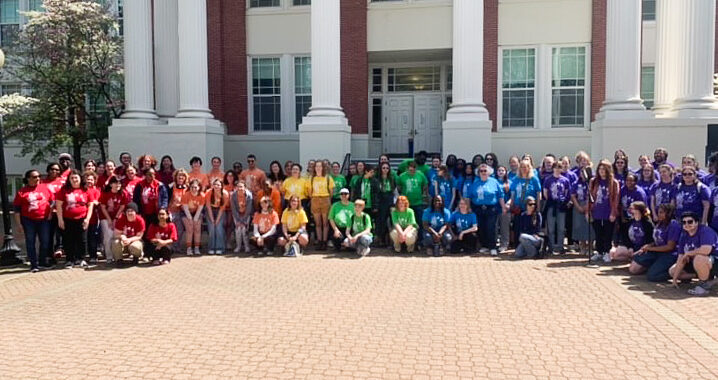University changes Sexual Misconduct Policy
3 min readBy LAUREN GRANT
The University of Mary Washington Division of Student Affairs announced an adjustment in the university’s sexual misconduct policy for the 2014-2015 school year.
The updated sexual misconduct section in the student handbook for 2014-2015 features a new attitude toward bystander intervention and community responsibility in recognizing and reporting incidents of sexual violence.
Compared to previous student handbooks, this year’s contains expectations of the UMW community to be more responsible in actively reporting incidents and bypassing confidentiality in order to keep students safer.
Previous editions did not include the responsibility of students and staff to report suspicious incidents or acknowledge the impact of bystander intervention at all.
Throughout its history, UMW maintained a no-tolerance policy on sexual violence and encouraged sexual assault victims to look into prosecution and education for prevention. The university’s stance on handling sexual violence cases has and continues to prioritize the well being of the victim in finding appropriate medical and psychological treatment.
UMW abides by the nationwide Title IX. Enacted in 1972, the statute promotes gender equality on college campuses.
Leah Cox, special assistant to the president for Diversity and Inclusion, is responsible for many of the changes made to the school policy on sexual misconduct and is the university’s main authority on Title IX issues.
“These are positive changes. We want to emphasize bystander responsibility and make sure students feel safe,” said Cox.
According to Cox, the changes made to the sexual misconduct segment are effective and positive, although she said there has not yet been any student feedback, despite her attempt to bolster awareness.
The new policies follow a new task force implemented by Virginia Gov. Terry McAuliffe that focuses on more thorough training for emergency responders.
Some of the changes that will be implemented will involve better regulated victim questioning and harsher punishments for those found guilty of an assault.
Some students who attend UMW expressed mixed feelings about the actual effectiveness of UMW’s policy change.
“A key aspect that should be considered by the school includes educating people to not become perpetrators, rather than focusing solely on victim prevention techniques,” said junior psychology major Kate Schaefer.
However, the new changes do include a section that features a checklist on how not to be an assailant and reminds students of basic safety rules, such as not over drinking or remembering that past consent does not equal future consent.
The new section connects with victim reactions and, according to Cox, provides more information about on-and-off-campus resources, the roles of authority figures and steps on how to combat such an assault and prevent one from occurring.
Senior English major Erin Davenport said she recognizes the improvements in the handbook on sexual misconduct but believes even further steps should be taken.
“The school should implement an environment of open dialogue to better inform students, instead of just online resources. The students need to be conversed with on this subject,” Davenport said.
The change comes on the heels of reports that more than 55 colleges across the nation, including at least four Virginia state schools, are under investigation for violation of Title IX. UMW is not included on the list.
According to the Washington Post, nationally, the number of sexual assaults rose 50 percent during 2009 to 2012. However, according to the Free Lance-Star, sexual assaults on the UMW campus have decreased since 2005.
Cox said these numbers are impossible to measure accurately as students have in the past refrained from reporting sexual misconduct incidents. For this reason, Cox emphasized the community responsibility to report any incident and give feedback to administration instead of staying silent.
With national and local action being taken to implement security on college campuses and bolster open dialogue, UMW is continuing to promote its “Red Flag” campaign and blue light safety system across campus, two initiatives which promote awareness and further protection.
“Knowledge is power,” said senior psychology major Cierra Everette. “Students need to be educated about prevention and RAD classes in orientation and in class settings by professors. Just because we are not included on the list doesn’t mean we have always handled sexual assault cases well.”
UMW students who have experienced sexual violence can get help and support 24/7 at the Talley Center for Counseling Services on campus at 540-654-1053.











